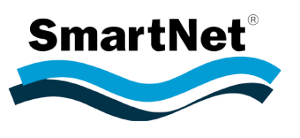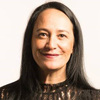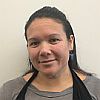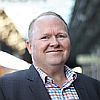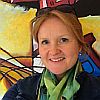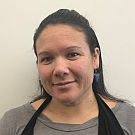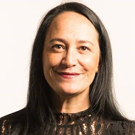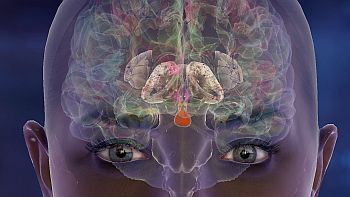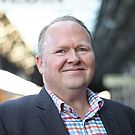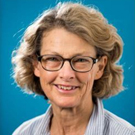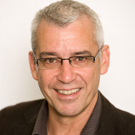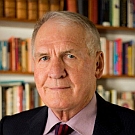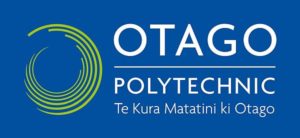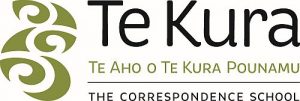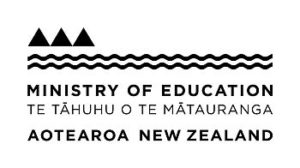Phil Ker
Chief Executive
Otago Poytechnic
Integrating learning and work
Nicola Ngarewa
Principal
Spotswood College
DISRUPT-ED: Embracing the future
Irihāpeti Mahuika
Director of Learning
Haeata Community Campus
Equitable Digital Access
Mike Hollings
Chief Executive
Te Aho o Te Kura Pounamu (Te Kura)
Te Kura’s transformative shift online
Cheryl Adams
CEO
Animation Research
Prison VR Literacy Project
Paul Stevens
GM, Open Knowledge Group
Catalyst IT
Education and Open Source IT Innovation
Fraser Liggett
Economic Development Programme
Enterprise Dunedin, DCC
Centre of Digital Excellence
Dr Mary Redmayne
Independent Researcher
Victoria and Monash University
Dangers of Screen Overuse
Anjie Webster
Education Advisor
Netsafe
Online Safety and Wellbeing
Pauline Spence
Education Advisor
Netsafte
Online Issues and Incidents
Donald Matheson
Media & Communications
University of Canterbury
Handling Fake News and Flaky Views
Prof Tim Bell
Department Computer Science &
Software Engineering UC
The New Digital Technologies Curriculum Content
Andy Kilsby
Director Employability
Otago Polytechnic
EduBits – a new way for learners to show what they know
Bios and Topics
Phil Ker – Chief Executive, Otago Polytechnic
Phil took up his appointment as Chief Executive of Otago Polytechnic in 2004. He has a diverse set of experiences and has developed a broad portfolio of expertise as both an academic and an administrator in both university and polytechnic environments.
He is a successful tertiary leader and teacher, with expertise in curriculum development, assessment of student learning and leadership. He has had a lengthy teaching career including teaching economics, accounting, management and tertiary teaching practice; and has had a career long interest in leadership and leadership development, in the professional development of tertiary educators and in the recognition of prior learning.
Phil’s particular interest is in business education, education for sustainability, staff development generally and leadership development specifically; and in the recognition of prior experiential learning.
Phil is a member of the following Boards: Director – TANZ (Tertiary Accord of New Zealand), Director – TANZ eCampus Ltd, Director JBA Ltd, Executive Director – Post Secondary international Network (PIN), Director – Malcam Charitable Trust, Director World Federation of Colleges and Polytechnics.
Phil enjoys cycling, and especially long distance road cycling now that his marathon running days are behind him. He is also a motor cycling enthusiast who takes every opportunity to ride his Har-ley Davidson through beautiful Central Otago. Travel, movies and reading crime and suspense novels are favourite pastimes he shares with his wife Glenys.
Qualifications: MEd (Administration) – First Class Honours, Massey University, 1995
Bachelor of Commerce, The University of Auckland, 1973
Management and Leadership in Education, Harvard University, 2001
Trained Teachers Certificate, Auckland College of Education, 1973
Topic: Integrating Learning and Work in the Digital Age
-Challenges, benefits, an app and an appropriate qualification mechanism
The future of fast evolving vocational education and training will be one in which those who commence their learning at work can capture that learning in an effective way which allows for developmental learning and for credit towards qualifications. Conversely, for those who commence learning in institutional settings but who are drawn into work prior to completion of qualifications, there will be a curriculum that ‘follows‘ them into the workplace, allowing them to complete their qualifications through work-based learning. The mechanism which will glue together workplace and institutional learning will be the micro-credential, supported by digital tools like a productivity app adapted to make life easier for apprentices and other learners, their employers and polytechnic tutors.
Irihāpeti Mahuika – Kaihautū Whakaako: Director of Learning, Haeata Community Campus
Irihāpeti co-leads a dynamic team of educators who are passionate about empowering young people and their whānau through extraordinary learning, wellbeing and community engagement. Education at Haeata is holistic, personalised and responsive to the needs of our ākonga in this dynamic and ever-changing landscape.
Irihāpeti is passionate about bridging the digital divide to ensure that all ākonga and their whānau are able to access education by removing barriers that exist for whānau in her community. Raised in Aranui, she is aware of the reality for many whānau who are a part of the Haeata Community and believes that education is the key to uplifting this community to reach their full potential.
Topic: Equitable Digital Access for Students
In 2020 the MoE has stated all teachers in NZ must be equipped to teach Digital Technologies.
Statistics and research show that our young people are not fully equipped to fill a range of 21st Century job roles currently available. Schools are working hard to bridge this knowledge gap, but what are we doing about equitable access to this from homes and communities? 100,000 students in New Zealand do not have access to internet from their home. There are varied reasons for this and one of those is the simple fact that it can be unaffordable.
The Haeata Community Campus has partnered with Chorus, N4L, MoE and The Greater Christchurch Schools’ Network Trust to work towards bridging the digital divide. With it’s launch in 2018, Project ConnectED is a collective effort to connect students and whānau to their education from home.
Irihāpeti Mahuika, will tell the story of how ConnectED has come to life and the impact of this for the community and students they serve.
Nicola Ngarewa – Principal Spotswood College
Nicola Ngarewa has taught in all sectors of education from Early Childhood to Tertiary including in the NZ Prison system. She is currently Principal at Spotswood College who are undertaking a massive shift from traditional learning to future focused learning. She is also currently on Governance Board for the Aotearoa/ NZ Teachers Council
She is passionate about disrupting the educational norm through transformative leadership and future focus and global citizenship. In 2013, she received a Sir Peter Blake Leadership Award as a result of transformative work at Tamatea High School. In 2016 she was the recipient of the Taranaki Daily News Person of the Year for transformative work at Patea Area School, with the school receiving the National UNESCO award for Education – Global Citizenship 2018.
Topic: DISRUPT-ED – A journey of embracing the future focus!
Sharing the transformative journey from a traditional learning context to a future focused educational model based on the experiences of leading this shift in two schools of different contexts – an underperforming decile 1 area school, and a high performing decile 5 traditional high school.
Jessica Tulp – Business Associate, Soul Machines
Jessica joined Soul Machines as a Business Associate in 2018. Soul Machines™ is building a HumanOS for Artificial Intelligence so we can communicate, connect and relate to AI in ways that make it accessible, contextual and trusted. By creating a new type of Artificial Intelligence called Experiential Learning – and the world’s first Digital Brain™ – Soul Machines is radically humanising technology, delivering a personalised human-like experience and connections at scale operating independently. Soul Machines’ breakthroughs in Experiential Learning add human intelligence to AI, taking interactions beyond algorithms and enabling digital beings to accumulate experiences, learn, and respond emotionally.
Prior to Soul Machines Jessica worked at Rocket Lab, the global leader in small satellite launch, where she was responsible for the management of a large variety of projects, including establishing and running an education and scholarship programme. Jessica has previously worked with start-ups at both Callaghan Innovation and the Icehouse, where she developed a passion for entrepreneurship and the commercialisation of innovative science and technology.
Topic: Humanising Technology
-By creating a new type of Artificial Intelligence called Experiential Learning – and the world’s first Digital Brain™ – Soul Machines is radically humanising technology, delivering a personalised human-like experience and connections at scale operating independently.
Soul Machines’ breakthroughs in Experiential Learning add human intelligence to AI, taking interactions beyond algorithms and enabling digital beings to accumulate experiences, learn, and respond emotionally.
Rachel’s brain: Soul Machines™ emotionally responsive digital humans are created by the world’s only Digital DNA™ and brought to life by the world’s only Virtual Nervous System™.
Fraser Liggett – Economic Development Programme Manager, Enterprise Dunedin, Dunedin City Council
Fraser joined Enterprise Dunedin in May 2016. He has responsibility for the implementation of the Dunedin 2013-23 Economic Development Strategy with the Grow Dunedin Partners. Fraser oversees a range of specific activities including– Ara Toi, Film, Tech and Business start-up, Good Food Dunedin, International Education, Project China and GigCity.
Fraser sits on the Film Otago Southland Board and is former Board of the Otago, Southland Employers Association (OSEA). He has held management roles in London and previously led European Commission funded skills projects in France, Germany, Spain and Belgium. Fraser advised the London Development Agency (LDA) and Olympic Delivery Authority (ODA) on economic development issues as part of the London 2012 Olympics.
He prepared the ODA Employment and Skills Strategy, managed the development of the Construction College East London on the Olympic Park and authored a regeneration impact study on light rail investment in Central London. As a former Senior Analyst with the National Infrastructure Unit of the Treasury, Fraser worked on the State Sector Capital Asset Management (CAM) and Public Private Partnerships (PPP) programmes.
Topic: Dunedin: Digital Investments and Digital Dividends
-Education-business links and evolving plans for a Centre of Digital Excellence.
Plans are advancing for a new Centre of Digital Excellence (CODE) in Dunedin which will build on the city’s digital strengths, particularly in game and app development and associated sectors, including education and training. The business case is being led by Enterprise Dunedin.
Cheryl Adams – CEO Animation Research
Animation Research was founded by Ian Taylor, recently declared Innovator of the Year. Cheryl has had 20 years working in ICT. She is an experienced business and project manager with a B Eng. Mech (Hons 1) from University of Canterbury. Cheryl is the IPENZ Wonder Project Ambassador and is passionate about supporting people to be the best that they can be and introducing our tamariki to the opportunities that tech opens up for them.
https://www.linkedin.com/in/cheryl-adams-a1b6288/?originalSubdomain=nz
Topic: Virtual Reality Learning Tools in Prison (with Jimmy McLauchlan see Outline below)
Jimmy McLauchlan – Business Development Manager, Methodist Mission Southern
Jimmy is responsible for design and development of innovative education programmes and social service programmes. He specialises in working with individuals and whānau with complex barriers to achievement.
Currently he is developing and evaluating; self-regulation development programmes for early childhood education, speech-language and dyslexia programmes for justice sector clients, iCBT mental health models, transitional youth housing facilities and virtual reality learning tools for foundation level literacy and numeracy. https://www.linkedin.com/in/jimmy-mclauchlan-525a76115/
Topic: Virtual Reality Learning Tools in Prison
Approximately 65% of people in New Zealand prisons lack NCEA Level 1 literacy and numeracy skills – severely limiting their educational and employment opportunities on release, and increasing their risk of re-offending on release. Methodist Mission Southern and Animation Research Limited, with support from University of Otago Information Science Department and Ngāti Kahungunu, are working alongside prison-based learners at Otago Corrections Facility to co-design, develop and evaluate virtual reality learning tools – with the aim of significantly improving engagement, completion and achievement rates for learners in prison literacy and numeracy programmes.
Dr Mary Redmayne PhD, PG Dip Teach., PG Dip Env Stud. Independent Researcher, Monash University
Mary was a Primary School teacher in Wellington between 2003 and 2008. Post-graduate study followed, with Honours in Environmental Studies, then a PhD from VUW. She completed a two year Postdoctoral Research Fellowship at the Centre for Population Health Research on Electromagnetic Energy, Department of Epidemiology and Preventive Medicine, Monash University in 2016, and is now based back in Wellington, working as an independent researcher, consultant, and educator. She holds Adjunct Research Fellowship positions at Victoria University of Wellington and Monash University, Melbourne.
Her primary research interests revolve around the effects of electromagnetic fields (EMF) on health and well-being. More recent interests are other emerging effects on child development, and their physical and mental health related to screen-time. She has many publications in the peer-reviewed literature and has presented at conferences, workshops and seminars internationally. She is a Participating Member of Standards Australia Committee on Human Exposure to Electromagnetic Fields, Technical Committee TE-007. Presentations this year have included public seminars on “Raising healthy children in the screen-age”.
Topic: Addressing Dangers of Screen Overuse
In fewer than ten years, most mobile phones have moved from being phone-call and texting devices to an indispensable, instant-access remote source of information, social connection and entertainment.
It is becoming apparent that for many people the immediacy and ‘rewards’ increasingly over-ride the very real need for face-to-face interactions, outdoor exercise and time with nature, while building a sense of isolation and lack of fulfilment.
Extended screen-use is often not a conscious choice but the result of at least three factors: intentional design aspects of online material and platforms intended to hook the user into increasing use; effects of microwaves transmitted by devices (eg mobiles, laptops, and tablets) on cognitive and neurochemical processes; and a lack of understanding of why and how to self-regulate screen-use.
Without conscious steps to be in control of one’s use of screens, the journey to screen-dependence follows. Extensive screen-time can then lead to behavioural problems, anxiety and depression.
Physical risks from extended screen-time include increased risk of myopia, spinal problems, and reduced growth, as well as those which result from a sedentary lifestyle. Exposure to the microwaves emitted also negatively affects sleep, impairs the quality of sperm, and increases oxidative stress (damaging neural cells, among others).
Our mental health statistics are shouting loud and clear: it is high time attention was paid to providing our children and teens with skills to keep or reclaim control over their use of time and prevent electronic technology taking control of their lives. It is our duty as teachers, parents and health providers to teach them how to make technology work for them while building up skills to know why and how to avoid the distractions that lead to dependence and even screen “addiction”.
Some steps towards reducing microwave exposure and hints for managing the impulse to over-use screens will be presented for discussion, along with some resulting benefits.
Anjie Webster – Education Advisor, Netsafe
Anjie Webster is an Education Advisor for Netsafe. Anjie has been in education for over 25 years, and more recently completed her M.Ed(Hons) in all things around the online space and what’s needed to support young people. Anjie works in schools and kura, shares presentations across education conferences, forums, CoLs and clusters, and creates resources alongside the Netsafe team.
Netsafe is an independent, non-profit New Zealand organisation focused on online safety. Netsafe provides specialist support for schools, educators and school communities around digital citizenship, responding to online incidents and other online safety issues.
Pauline Spence – Education Advisor, Netsafe
As Netsafe’s Education Advisor for the upper North Island, Pauline works closely with schools to help them to develop safe online environments for young people. Pauline has over 20 years’ experience in education both in New Zealand and internationally and while always a classroom teacher at heart, in recent years she has worked in large school improvement projects as an education consultant.
She has led the development of professional learning programmes for teachers, contributed to the creation of programmes for school senior leaders and has been involved in the development and implementation of school wide systems.
Workshop: Anticipating and Responding to Online Issues and Incidents-What’s Needed?
Anjie Webster and Pauline Spence – Netsafe Education Advisors
This interactive workshop will look at:
- Effective online incident response.
- Proactive strategies for building a safer online environment.
- Resources to look at schools’ context, what is in place and working, and help identify what’s needed next.
- Examples of initiatives happening in schools.
- Research findings from Netsafe’s Research team and abroad.
While recent events have shown us the worst of the Internet, we have also seen evidence of the immense opportunities to draw people together and harness humanity’s strength and togetherness. Things can evolve very quickly and leaders’ readiness to respond is critical. However we need to be proactive in a range of ways to ensure we’re doing the best we can to educate and support the safety and wellbeing of our rangatahi, that they may become capable, responsible, and caring in the ways they engage with digital tools and online spaces.
Netsafe is an independent, non-profit New Zealand organisation focused on online safety. Netsafe provides specialist support for schools, educators and school communities around digital citizenship, responding to online incidents and other online safety issues.
Associate Professor Donald Matheson – Head of Media and Communications, University of Canterbury
Associate Professor Donald Matheson is a researcher on journalism and public communication. He has written on digital journalism in conflict zones, on the ethics of communication and on discourse analysis. His current research is a community-based digital storytelling project, involving the creation on a map-based app to record residents’ and manawhenua stories about the residential red zone in Christchurch. He is joint editor of the international journal, Ethical Space. In a former life, he was a journalist. Other details are at https://www.canterbury.ac.nz/arts/contact-us/people/donald-matheson.html
Topic: Handling Fake News and Flaky Views
– Educating users to tackle online prejudice and handle information critically.
The Christchurch shooting tragedy underlines the role of education in tackling prejudice and hate in social media and other online contexts by demonstrating the links between hateful comments and action. Social media platforms bring huge benefits such as a more open and inclusive society and opportunities for collective action. But they also diffuse responsibility for the public good and remove filters. Educating young people to stay safe and not do harm is important, but just as important is educating them about how to participate and share constructively online, listen across differences, think critically and access credible sources of information.
Mike Hollings – Chief Executive, Te Aho o Te Kura Pounamu (Te Kura)
Mike Hollings is the Chief Executive of Te Aho o Te Kura Pounamu (Te Kura). As New Zealand’s first fully online distance educator, Te Kura has over 20,000 students a year from early childhood to year 13. This innovative state school is also the leader in personalised authentic learning, which is based on Big Picture Education. Mike has wide-ranging experience in the education sector from teaching, policy, evaluation and leadership.
Mike is Ngati Raukawa and Te Atihaunui-a-Paparangi.
Te Aho o Te Kura Pounamu (Te Kura) is New Zealand’s state distance education provider. We provide learning programmes from early childhood through to NCEA Level 3. With over 20,000 enrolments a year, the school’s roll is diverse and dynamic. Learners include dual tuition for face-to-face schools, students who are geographically remote, students excluded from face-to-face schools or unable to attend for reasons such as high-health needs or involvement in high-performance sports or arts. Te Kura is a free school of choice for learners aged 16-19. We also teach adults.
Topic: Te Kura’s Transformative Shift to Online Provision
– The use of digital technology to greatly enhance teaching and learning in terms of access, engagement and learner agency.
Te Kura’s award-winning online learning environment “My Te Kura” provides engaging, accessible learning opportunities and enhances Te Kura’s personalised learning approach. We have adapted the international Big Picture learning approach to each learner’s context. Our students engage in real life learning opportunities. The learners’ passions and interests are at the centre, and their whānau and community are connected to their learning. Our learners are developing skills and enjoying a relevance to their learning that extends well beyond the traditional concept of the classroom.
Paul Stevens – General Manager – The Open Knowledge Group, Catalyst IT
Paul has over 20 years experience in the IT industry. Paul has been with Catalyst for 9 years where he is currently the GM of Open Knowledge. Paul’s experience includes the Totara Learn core development, managed the eLearning team and delivered one of the worlds largest Moodles (4 million learners).
He was also the Managing Director of Catalyst Europe 2013 – 2016 where he worked with many of the UK universities (eg. Kings College London, Cambridge, Nottingham & Bath) and NGO’s (UNICEF, Doctors without Borders & Humanitarian Leadership Academy) to deliver better learner experiences around the globe.
Topic: Education and Open Source IT Innovation
-Opportunities for Generation Z and Lessons for Educators
Kiwis have a unique perspective and are famous for their ingenuity. As a young country we’re not constrained by the same boundaries as others and NZ-headquartered Catalyst IT’s solutions reflect that. Catalyst has implemented some of the world’s largest Learning Management Systems using open source technologies to compete internationally and outsmart larger competitors.
As well as revealing insights into the fast changing world of work this presentation will also look at lessons for educators such as avoiding digital lock-in to proprietary platforms and providing delivery flexibility in different cultural environments.
Andy Kilsby -Director Employability, Otago Polytechnic
Andy Kilsby is Director Employability at Otago Polytechnic. His responsibilities include the development of innovative learning opportunities for secondary students, and those in transition. He recently accepted the challenge of integrating the Learner Capability platform across Otago Polytechnic’s extensive programmes of learning
Prior to joining Otago Polytechnic, Andy led the Malcam Charitable Trust, a nationally recognised provider of youth development services. He also enjoyed a 17 year management career in the finance sector. He has extensive governance experience, in secondary education, NGO and community development organisations.
Topic: EduBits – a new way for learners to show what they know
Otago Polytechnic, one of New Zealand’s leading tertiary education institutes, is proud to be the driving force behind EduBits, our micro-credentialing service. In this session learn how EduBits can be used to partner educational delivery beyond the classroom, making learning accessible and visible to industry and learners.
With more than 50 years’ experience providing assessment and learning programmes throughout New Zealand and internationally, Otago Polytechnic holds the highest possible quality-assured status rating from the New Zealand Qualifications Authority (NZQA). We ensure that all EduBits are constructed through robust internal quality processes, ensuring that they are credible, valuable and CV-worthy.
Prof Tim Bell – Department of Computer Science and Software Engineering, University of Canterbury
Tim Bell is a professor in the Department of Computer Science and Software Engineering at the University of Canterbury. He is heavily involved in the Kia Takatū ā-Matihiko digital readiness programme the the MoE has put in place to support the implementation of the Digital Technologies and Hangarau Matihiko (DT & HM) curriculum content by 2020. His main academic research interest is computer science education.
His “Computer Science Unplugged” project, which introduces students and teachers to computer science without using computers, is widely used internationally, and its books and videos have been translated into over 20 languages. Amongst other awards, he received the 2018 ACM SIGCSE Outstanding Contribution to Computer Science Education award.
He has been actively involved in the design and deployment of Digital Technologies as part of the New Zealand curriculum. He is also a qualified musician, and performs regularly on instruments that have black-and-white keyboards.
Topic: The New Digital Technologies Curriculum Content
-An ABC of computational thinking and digital technologies
The New Digital Technologies Curriculum Content sounds like it would be mainly about devices, but in fact it is more about people; devices aren’t an end in themselves, but a means for helping people to achieve their goals. In addition, teachers might be concerned that the technology is too fast-changing to keep up with, and uses jargon that may become outdated quickly.
This talk will look at the connection between the digital devices and people, including some key ideas and terminology foundational to digital systems, and reflections on helping teachers get up to speed with the curriculum. This will include exploring the lasting ideas that underpin the curriculum, illustrating them with examples from the Computer Science Unplugged approach.
Lyall Lukey – ELF Convener and MC
Lyall Lukey, Convener of the annual Education Leaders Forums since 2007 and Seismics and the City events 2012-2016, is the Managing Director of Lyall Lukey Resources Ltd, founded in 1987 and the originator and co-ordinator of SmartNet, founded in 1997 and Silververve, founded in 2016.
Lyall has a unique background spanning the academic and business worlds. His History MA Honours thesis was entitled Industrial Conflict in New Zealand. He is a former secondary school teacher and Visiting Teaching Fellow at the University of Canterbury. He also had three seconded stints in teacher recruiting.
Since 1987 Lyall’s organisation Lukey Resources has worked with client organisations throughout New Zealand in the public and private sectors to enhance their intangible assets – especially what their people know and do – through knowledge sharing.
SmartNet helps foster innovation and creates new local and global opportunities for New Zealand enterprises. SmartNet has an extensive database of NZ based and international speakers and consultants.
Lyall is a former National President and a Life Member of the service club Round Table New Zealand, a past member of the Rotary Club of Christchurch Sunrise and a Paul Harris Fellow. He was on the Board of Cholmondeley Children’s Home from 1987 to 2007 and was President from 2001 to 2005. He was made a Life Member of the Home in 2007. He was also the founding member of the Board of Trustees of the Cholmondeley Children’s Foundation, serving from 2004-17.
